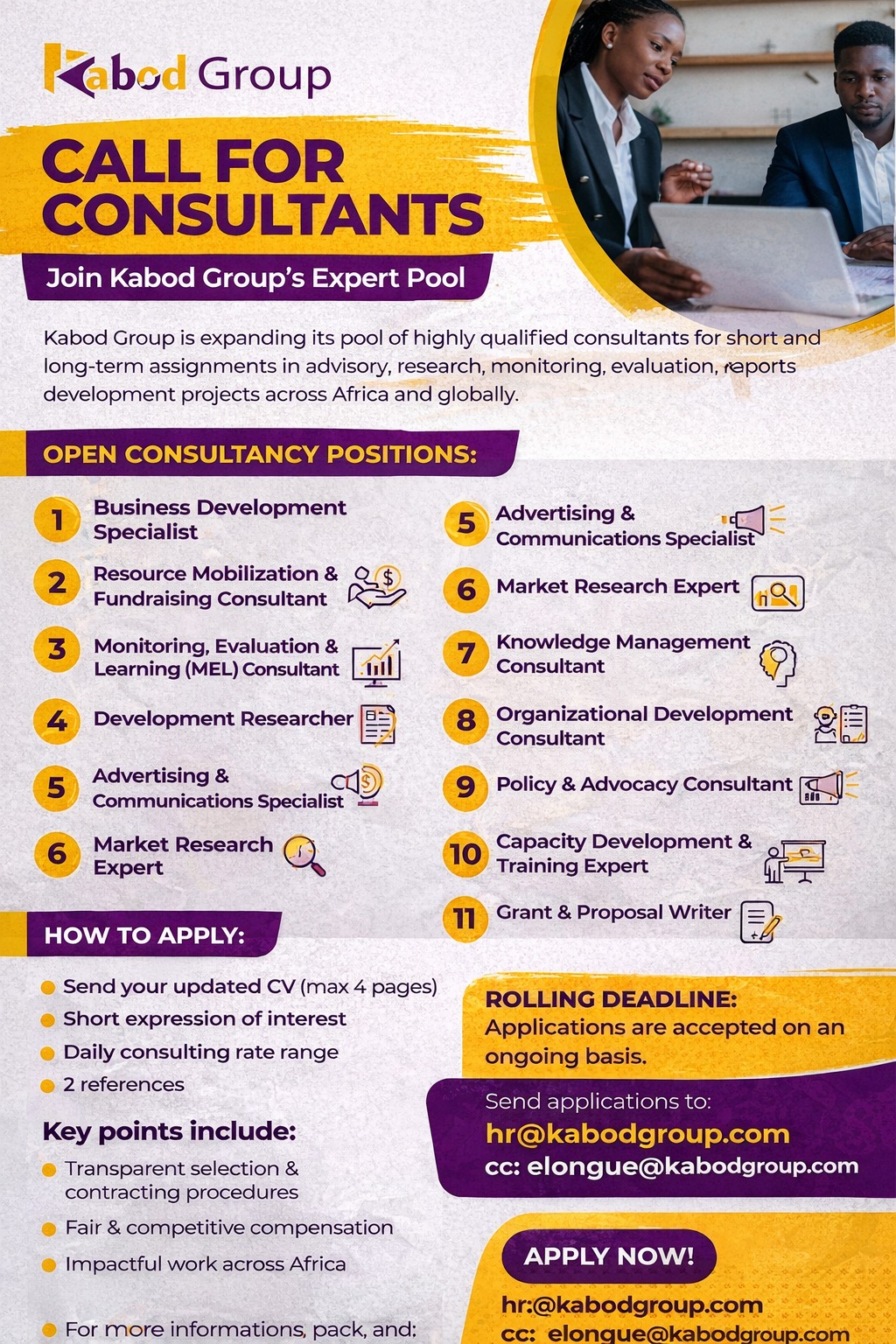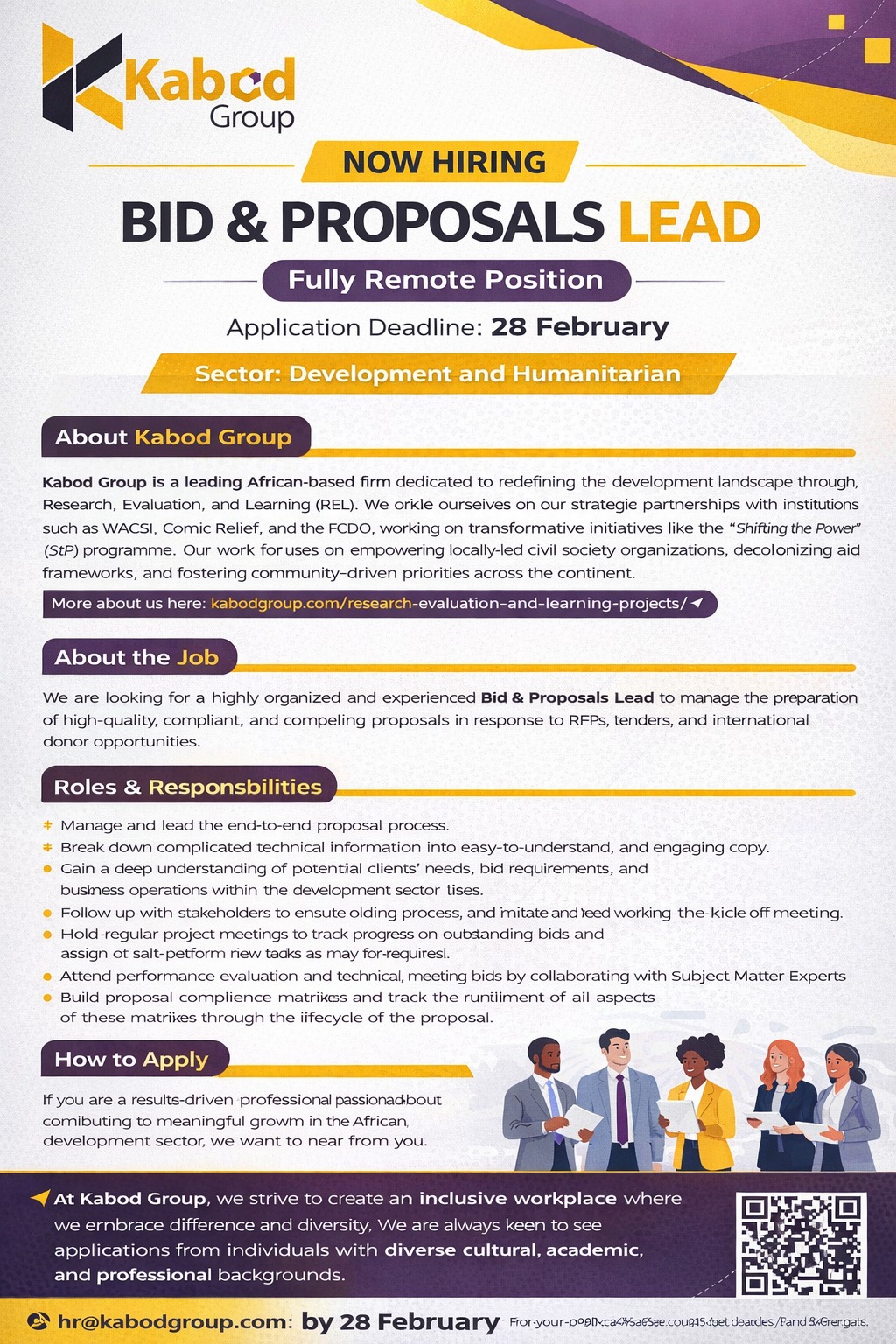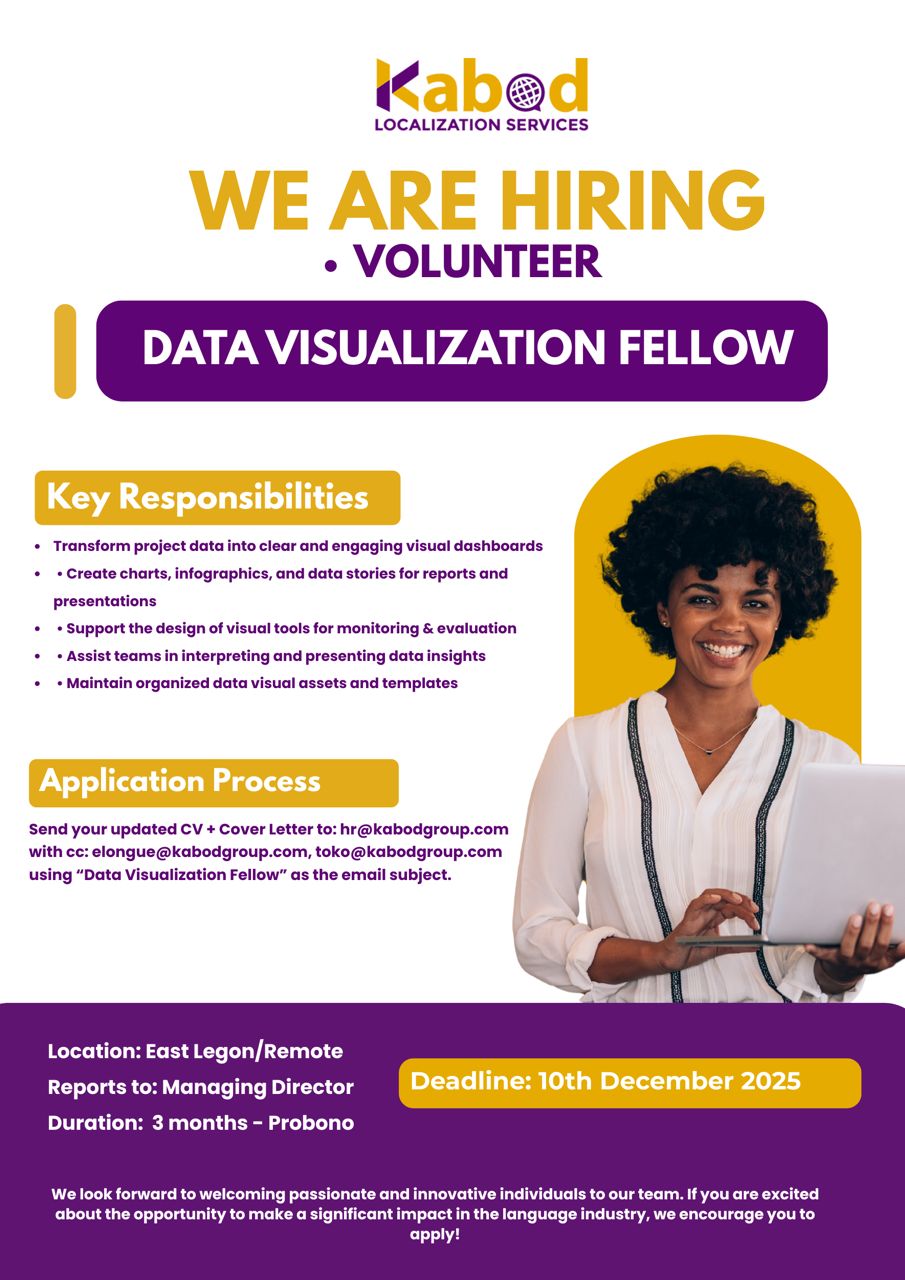The language industry in Africa is full of untapped opportunities. Kabod has ventured on a journey of identifying, documenting and highlighting inspiring stories and innovative projects from entrepreneurs, researchers and freelancers in the Translation, Interpretation and Natural Language Processing (NLP) communities. The final goal is to celebrate African professionals in the language industry and facilitate knowledge and experience sharing.
Ms. Oluwadamilare Temitope Igbayiloye is an African languages activist in Nigeria. She is a Yoruba Language Coach, Translator, Content Creator and Founder of Akoniledeyoruba, an online Yoruba School. She helps individuals connect with their audience in Yoruba language such that they will be proud of their identity & values.
Kabod: What attracts you to the language industry?
As a native speaker, I am naturally endeared to my language and my grandmother encouraged me to teach it to foreigners when I was still a teenager. All these didn’t really matter to me until now because I see the result and feedback from parents and students about the transformation of our Yorùbá language school in their lives.
Kabod: What do African languages mean to you?
African languages mean a way of life to express myself and solve problems in the language I understand.
Kabod: How did the idea of creating Akonilede Yoruba come up?
After struggling with the thought of teaching children the Yoruba language, I eventually agreed to start a mini school in my living room with our nine-month-old daughter and my neighbour’s children in November 2018. So, I had a family meeting with my 3 younger brothers, my husband and a young guy who designed our first website then, we came up with different kinds of names, checked online and with CAC, (business registration site in Nigeria). I told them I wanted the word “Yorùbá” to be part of the name and I don’t want to focus on children only but teenagers and adults, especially those in the diaspora. Then we got the word “Ẹni” which means ‘a person’, and after so much deliberation we all coined the word together “Akọ́nilédè Yorùbá” which means ‘A Yoruba language coach’.
Kabod: Why did you choose Yoruba? Do you plan on adding more languages to your company?
I chose Yoruba because I understand the nitty-gritty of the language. Aside from being a native speaker, I studied the language up to the master’s level.
For now, I’m only focused on Yoruba, probably in the future, we’ll add other languages.
Kabod: What are some challenges you encountered during your career and this project ?
One of the challenges I encountered at the early stage of my career was parental acceptance. Most parents don’t want their children to learn about their mother tongue while others believe that their children will pick it naturally and there’s no need to enrol them to learn from a school. I can confidently say that it doesn’t work that way anymore because there are several reasons why the child will not pick up the language naturally, thereby leaving the child to grow up and being a novice of his/her language.
Also, there are not enough L2 Yoruba resources available online (I spent long hours designing my content, videos and resources, to teach the students).
Then, the lack of Professional Yoruba language teachers. Most Yoruba teachers then were not willing to invest in themselves and learn how to teach the language online, which is totally different from the classroom teaching style they are all used to. I had to organise different kinds of training to enlighten Yoruba language teachers on how to teach online using the best practices and innovative methods.
Kabod: Can you share some success stories of projects involving your company ?
One of our major success stories is that we were able to educate parents on the importance of allowing their children to learn the language. We also have students from 8-10 countries who are learning the language from our school now. We have more than 10 professional teachers who are teaching the language in our school. I was also awarded the National Education Advancement Ambassador by SNEA and our language school was finally registered in the United States of America. To mention a few.
Kabod: How can Africans position themselves to better tap opportunities in the global language industry?
Africans can position themselves to tap into global opportunities in the global language industry by showcasing and going to the marketplace. If we don’t share the good news and the beauty embedded in our language and its benefits, no one will know about the language. I realised that most language upholders are not bold enough to talk about their language at national or international programs, conferences. When there are conversations at such events, as language upholders, we should strive to share our opinions in our language and proffer solutions to problems using our local languages. With this practice, I believe more attention will be given to African languages because of the solution we bring to the table.
Kabod: What do you think are some challenges African languages face and how does your job help in solving those challenges ?
The challenges are numerous, I will list a few.
Inferiority – They’ve lied to us that our language is vernacular. I confidently say that my language is noble, my language is my identity – Èdè mi ni Ìdánimọ̀ mi.
Solution – My job at Akọ́nilédè Yorùbá helps in solving this problem by sensitising our parents and sharing the values embedded in the language and culture.
Unavailability of language resources – Most African languages words, cultures and traditions are not documented.
Solution – In my school, we are documenting most Yoruba words, especially words that upcoming generations can use in their daily conversation, in our Yoruba bank word.
Lack of recognition – In Africa, most of our languages are not recognized. Unlike other languages, there is no national day set aside for the recognition of our language. I believe that if this is in place, it will inspire the language upholders, which will definitely impact the work they do in the language industry.
Solution – At Akọ́nilédè Yorùbá, we set aside a day in November to celebrate this Yoruba language which equally marks the day the language school was founded.
Lack of events – programs that promote African languages – I have seen programs being held to honour some professions or other industries but we don’t have many programs around African languages.
Solution – At Akọ́nilédè Yorùbá, we have a yearly program tagged “Erékọ́dún”, coined from three words: Eré, Ẹ̀kọ́ and Ọdún (Fun, Education, Year). I shared this vision with my husband in 2018 and we had the first edition in 2019, showcasing the wisdom, knowledge, culture, people, places etc. in the language in a fun way at the end of the year. We plan to scale this event as we grow.
Kabod: Do you think there is a viable market for African languages professionals ?
I strongly believe that there’s a viable market for African languages and professionals.
The world is a global village now and a lot of people want to learn more about other people’s language and culture. Most organisations now want to expand their business by exploring language as a tool to reach more customers and make more money. There is migration, parents moving from one country to another and willing to pay professionals to teach their children and lots more.
Language professionals need to be proactive and position themselves to solve these problems so that they can be paid a premium for providing solutions to these problems.
Kabod: What are the three top pieces of advice that you will share with a budding language professional from Africa per your experiences?
1. Package your content (value). Be resilient – Don’t give up on challenges, because they will definitely come (the challenges you’ll face might be peculiar based on the type of audience you serve).
2. Learn the skill of marketing and selling the language you have chosen (No one will patronise your expertise if they don’t know you).
3. Be open to learn, unlearn and embrace technology.
Kabod: How do you envision the future of African languages?
African languages will soon become sought after if we don’t relent in providing solutions and applying the use of technology where necessary. The future of language and technology is here.
Thanks, Ms. Oluwadamilare Temitope Igbayiloye , for your time and for sharing your experiences with us.
Are you also working in the language industry in Africa? Would you also like to be featured in our Knowledge Exchange Series, which highlight the journey and experiences of African language translators, interpreters, computational linguists etc.,? Then, reach out to languages@kabodgroup.com to express interest.





